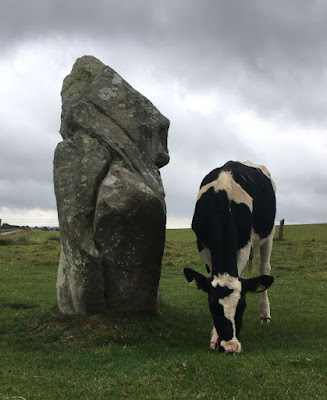Fairy Tale 8 - The Horrid Orphan
Once there was an orphan who was really horrid. Many people thought they should simply feel sorry for the orphan. But the orphan was horrid, so they couldn’t, and they didn’t.
Someone in the village thought this was all terribly unfair. This person – let’s call them Angela – was convinced that nobody was inherently horrid. She believed that someone could only be horrid because life had made them that way. The poor child was an orphan! It was obviously an awful and traumatic thing to lose both your parents, you were bound to have some sort of negative reaction, being horrid was probably a perfectly reasonable response.
Someone else in the village – let’s call them Bernadette – thought this was tosh. There were plenty of orphans and they’re actually all rather lovely: Harry Potter, Becky Sharp, Oliver Twist, Jane Eyre, Mowgli, Jude, Peter Pan, Snow White, Tom Sawyer, Emma, David Copperfield, Batman. All of these people have been through the trauma of losing both parents and they’re not horrid! In fact, in many cases they’re quite the opposite of horrid! The horrid orphan’s horridness is clearly independent of orphandom. Or orphanity.
Caroline expressed dismay at the euphemism “lost”, as though the horrid orphan had come back from a trip to the zoo with mother and father still in the reptile house. Danielle agreed. It was decided that Eugenie would henceforth monitor the creeping vine of euphemism, but then Florence and Georgina were worried about the overlap with (respectively) metaphor and simile.
Harriet thought this was all a distraction. The key point, she argued, was a simple one, and it was an old one too: nature or nurture? Imelda agreed that this simplification probably helped, but wanted to return to the earlier problem, namely the reliance on a list of fictional orphans to support an argument pertaining to the horrid orphan.
Jacqueline opined that this was a misconception, given that the horrid orphan was also fictional; a perspective shared by Katie and embellished by Louise, who pointed out that all the characters thus far were fictional.
This entire dialogue, appended Maria, is just pretend.
Natalia wanted to know if there could possibly be any legitimacy in a middle-aged white male putting words into the mouths of imaginary women-folk bearing alphabetised names. Olivia wanted to know if any of the women were women of colour, and Penelope wanted to know whether the word ‘woman’ was being used – either by any of the characters or by the author – in a properly inclusive way.
Queenie expressed an anxiety: how could any author truly imagine the state of any being other than themselves? To presume any access to the lived experience of others – Rachel stipulated – was an affront. The author, Sharon insisted, could speak only of the life of a middle aged, reasonably prosperous white male born in the second half of the twentieth century in a small town to the north east of London.
Who had been born on a Wednesday, Tatiana added.
Ursula tried to sum up but was interrupted when Vivienne wondered about the orphan. Winifred tearfully agreed – the important thing here is the poor abandoned child.
Xanthe announced that there was no sign of the horrid orphan, an abscondment that Yasmin proposed was evidence of how horrid the orphan truly was. Zoë wonder aloud about nature and nurture and asked whether people thought that the orphan being horrid was the result of orphandom (or orphanity) or was independent and therefore immanent to the particular individual.
There was a great cry of “Oh for god’s sake have you not been paying attention?!” but this was hurriedly deflated by the arrival of some very fine gin and tonics all round.



Comments